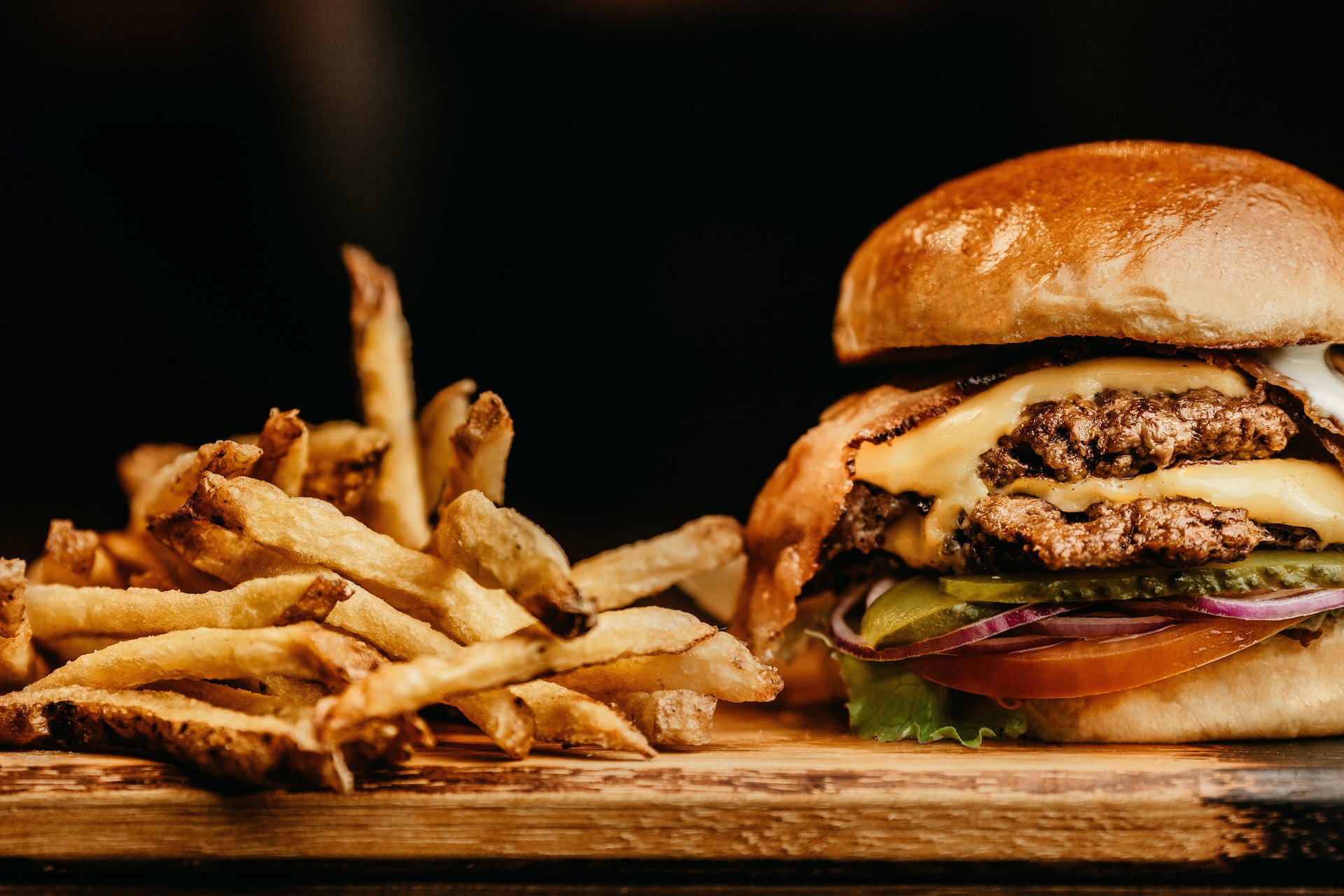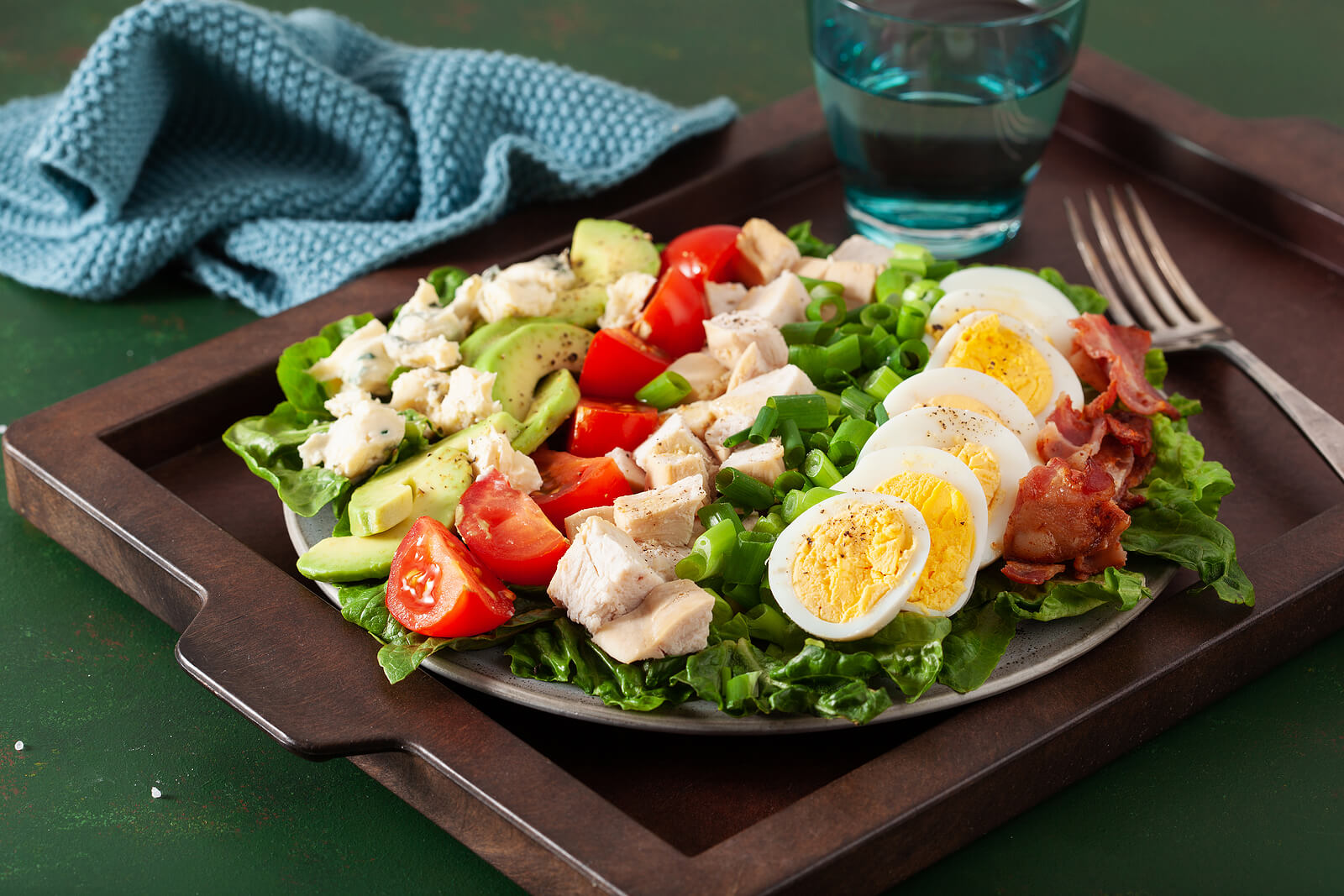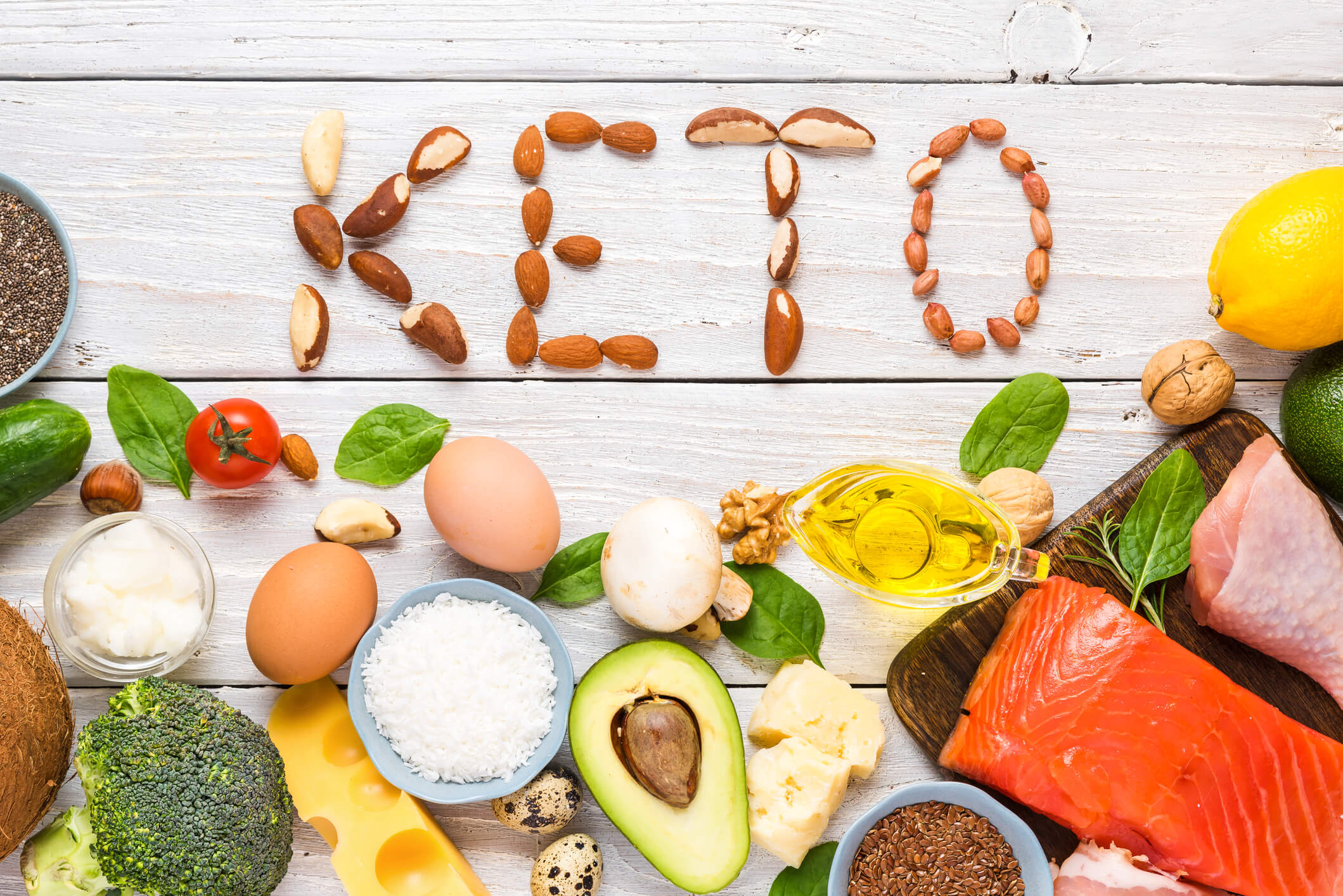If you’re looking to get toned abs, then you likely already know that diet plays a crucial role in achieving your goals. While many people believe that eliminating all carbs is the key to a flat stomach, this isn’t necessarily true. In fact, some carbohydrates can actually be beneficial for your abs, while others can hinder your progress. So, what carbs should you avoid for abs?
First and foremost, it’s important to understand that not all carbs are created equal. Simple carbohydrates, such as those found in sugary snacks and processed foods, are the ones you’ll want to avoid. These carbs are digested quickly by the body, causing a spike in blood sugar levels that can lead to weight gain and bloating.
Instead, focus on consuming complex carbohydrates, such as those found in whole grains, fruits, and vegetables. These carbs are digested more slowly, providing you with sustained energy and helping to keep you feeling full.
Another type of carb to avoid when trying to get abs is refined carbohydrates. These are carbs that have been stripped of their natural fiber and nutrients, leaving behind a product that is high in calories and low in nutritional value.
Examples of refined carbs include white bread, white rice, and pasta made from refined flour. Instead, opt for whole grain versions of these foods, which are higher in fiber and other important nutrients. By making smart carb choices and avoiding the wrong ones, you can support your journey toward toned abs.
Understanding Carbohydrates
Carbohydrates are one of the three macronutrients, along with proteins and fats, that provide energy to your body. They are made up of sugar molecules and are commonly found in foods such as bread, pasta, rice, and fruits.
When you eat carbohydrates, your body breaks them down into glucose, which is then used as energy for your cells. Glucose can also be stored in your muscles and liver as glycogen for later use.
Not all carbohydrates are created equal, however. Some carbohydrates, such as those found in fruits and vegetables, are considered “complex” and take longer to break down, providing a slower release of energy. Other carbohydrates, such as those found in candy or sugary drinks, are considered “simple” and are quickly broken down, leading to a rapid spike in blood sugar levels.
It’s important to note that carbohydrates are not inherently bad for you and can be a healthy part of your diet. However, if you are looking to achieve visible abs, it may be necessary to limit your carbohydrate intake and focus on consuming complex carbohydrates that provide sustained energy without spiking your blood sugar levels.
In general, it’s recommended to avoid highly processed carbohydrates such as white bread, white rice, and sugary drinks. Instead, opt for whole-grain bread, brown rice, and complex carbohydrates found in fruits and vegetables.
Remember, carbohydrates are an important source of energy for your body, so it’s important to find a balance that works for you and your fitness goals.
Carbs to Avoid for Abs
When it comes to achieving visible abs, your diet is just as important as your workout routine. Carbohydrates are an essential macronutrient that your body needs for energy, but not all carbs are created equal. To help you achieve your goal of visible abs, here are some carbs to avoid:
Processed Grains
Processed grains such as white bread, cake, and chips are high in refined sugar and low in fiber, meaning they are quickly digested and can lead to blood sugar spikes and crashes. This can make it harder for your body to burn fat and build muscle, leading to a less defined midsection. Instead, opt for whole grains such as brown rice, quinoa, and whole wheat bread, which are higher in fiber and take longer to digest.
Sugary Beverages
Soda and other sweetened beverages are some of the worst culprits when it comes to added sugar. They provide empty calories and can lead to weight gain, which can make it harder to see your abs. Instead, try drinking water, unsweetened tea, or black coffee to stay hydrated.
Alcohol
Alcohol is high in calories and can also disrupt your body’s hormone balance, making it harder to burn fat and build muscle. Additionally, many alcoholic drinks are high in sugar, which can lead to blood sugar spikes and crashes. If you want to enjoy a drink, try sticking to clear spirits such as vodka or gin mixed with soda water and lime.
Fried and Fast Foods
Fried and fast foods are often high in calories, unhealthy fats, and refined carbohydrates. They can also be loaded with salt, which can cause water retention and bloating. Instead, try cooking at home using healthy fats such as olive oil or avocado oil and incorporating plenty of vegetables and lean protein into your meals.
By avoiding these carbs, you can help support your goal of achieving visible abs. Remember, it’s not about completely cutting out all carbs, but rather choosing the right ones in moderation.
Impact of Carbs on Body Fat
Carbohydrates are an essential macronutrient that provides energy to the body. However, not all carbs are created equal, and some can have a significant impact on body fat. In this section, we will discuss the impact of carbs on body fat and which carbs you should avoid to achieve abs.
Carbs and Weight Gain
Consuming too many carbohydrates can lead to weight gain. When you eat carbs, your body breaks them down into glucose, which is then used for energy. However, if you consume more carbs than your body needs, the excess glucose is stored as fat. This can lead to weight gain and an increase in body fat.
Carbs and Belly Fat
Belly fat, also known as abdominal fat, is a type of visceral fat that accumulates around the midsection. Consuming too many carbs, especially refined carbs, can lead to an increase in belly fat. Refined carbs are carbs that have been processed and stripped of their fiber and nutrients, leaving behind empty calories that can contribute to weight gain and belly fat.
Carbs and Fat Loss
If you want to lose body fat, you need to consume fewer calories than your body burns. This is known as a calorie deficit. Carbs can be a part of a healthy diet, but it’s important to choose the right ones. Complex carbs, such as whole grains, fruits, and vegetables, are high in fiber and nutrients and can help you feel full and satisfied. This can make it easier to stick to a calorie deficit and lose body fat.
Which Carbs to Avoid
If you want to achieve abs, there are certain carbs you should avoid. These include:
- Refined carbs: These include white bread, pasta, pastries, and sugary drinks. They are high in calories and can contribute to weight gain and belly fat.
- High glycemic index carbs: These are carbs that are quickly broken down into glucose and can cause a spike in blood sugar levels. This can lead to an increase in insulin, which can contribute to weight gain and body fat. Examples include white rice, white bread, and sugary drinks.
- Processed foods: Many processed foods are high in refined carbs and added sugars, which can contribute to weight gain and body fat. Examples include chips, crackers, and cookies.
By avoiding these types of carbs and focusing on complex carbs, you can achieve a healthy body fat percentage and achieve your goal of abs.
Carbs and Blood Sugar
When it comes to achieving those coveted abs, managing your blood sugar levels is key. Carbohydrates can have a significant impact on your blood sugar, which can in turn affect your body’s ability to burn fat and build muscle. Here are a few things you should know about carbs and blood sugar:
Glycemic Index
The glycemic index (GI) is a measure of how quickly carbohydrates raise blood sugar levels. Foods with a high GI value are quickly digested and absorbed, causing a rapid spike in blood sugar. Foods with a low GI value are digested and absorbed more slowly, resulting in a slower, more gradual rise in blood sugar.
Foods with a high GI value include white bread, white rice, and sugary drinks. Foods with a low GI value include whole grains, legumes, and non-starchy vegetables.
Insulin
Insulin is a hormone that helps regulate blood sugar levels. When blood sugar levels rise, the pancreas releases insulin to help move glucose into the cells where it can be used for energy.
Eating too many high-GI carbs can cause your body to produce too much insulin, which can lead to insulin resistance over time. Insulin resistance is a condition in which the body’s cells become less responsive to insulin, making it harder to regulate blood sugar levels.
Type 2 Diabetes
Type 2 diabetes is a chronic condition in which the body becomes resistant to insulin and is unable to regulate blood sugar levels effectively. Eating a diet high in refined carbs and sugar is a major risk factor for developing type 2 diabetes.
If you have a family history of type 2 diabetes or are at risk for the condition, it’s important to be mindful of your carb intake and choose low-GI carbs whenever possible.
Fructose
Fructose is a type of sugar found in many fruits, as well as in processed foods and sweetened beverages. Unlike glucose, which is used by every cell in the body, fructose is metabolized almost exclusively by the liver.
Consuming large amounts of fructose can lead to insulin resistance, fatty liver disease, and other health problems. While fruit is a healthy choice in moderation, it’s important to limit your intake of processed foods and sugary drinks that contain high levels of fructose.
By choosing low-GI carbs and being mindful of your overall carb intake, you can help regulate your blood sugar levels and support your body’s efforts to burn fat and build muscle.
Healthy Carbs for Abs
If you’re looking for healthy carbs to help you get those abs, you’re in luck! There are plenty of options to choose from that can help fuel your workouts and keep you feeling full and satisfied. Here are some healthy carb options to consider:
Whole Grains
Whole grains are a great source of healthy carbs. They’re packed with fiber, which can help keep you feeling full and satisfied, and they’re also loaded with nutrients like B vitamins and iron. Some great options to consider include:
- Brown rice
- Quinoa
- Oats
- Whole wheat bread
- Barley
Fruits and Vegetables
Fruits and vegetables are another great source of healthy carbs. They’re loaded with fiber, vitamins, and minerals, and they’re also low in calories. Some great options to consider include:
- Sweet potato
- Berries
- Apples
- Leafy greens
- Broccoli
Legumes
Legumes are a great source of healthy carbs and plant-based protein. They’re also loaded with fiber, which can help keep you feeling full and satisfied. Some great options to consider include:
- Lentils
- Chickpeas
- Black beans
- Kidney beans
- Peas
When it comes to healthy carbs, it’s important to focus on whole, nutrient-dense options like whole grains, fruits and vegetables, and legumes. These options can help fuel your workouts, keep you feeling full and satisfied, and provide your body with the nutrients it needs to thrive.
Role of Other Nutrients
While carbohydrates are an important macronutrient to consider when trying to get abs, other nutrients also play a crucial role in achieving your goal. Here are some other nutrients to keep in mind:
Protein
Protein is a crucial nutrient for building and maintaining muscle mass. When you’re trying to get abs, it’s important to consume enough protein to support your muscle growth and recovery. Aim for lean protein sources such as chicken, turkey, fish, and tofu.
Fat
Healthy fats, such as those found in nuts, seeds, avocado, and olive oil, are important for overall health and can also help you feel fuller for longer. While it’s important to limit your intake of saturated and trans fats, don’t completely eliminate fat from your diet.
Vitamins and Minerals
Eating a variety of fruits and vegetables can help ensure you’re getting a wide range of vitamins and minerals that are essential for overall health. Some vitamins and minerals, such as vitamin D and magnesium, may also play a role in muscle function and recovery.
Nutrient-Dense Foods
When trying to get abs, it’s important to focus on nutrient-dense foods that provide a lot of nutrition for their calorie content. This includes foods such as leafy greens, berries, and cruciferous vegetables.
Lean Protein
In addition to being a good source of protein, lean protein sources such as chicken and turkey are also low in fat and calories, making them a good option for those trying to get abs.
In summary, while carbohydrates are an important consideration when trying to get abs, other nutrients such as protein, fat, vitamins, minerals, and nutrient-dense foods also play a crucial role. Make sure to include a variety of these nutrients in your diet to support your overall health and fitness goals.
Impact of Caloric Balance
When it comes to achieving visible abs, caloric balance is a crucial factor. Simply put, your caloric balance is the balance between the number of calories you consume and the number of calories you burn through daily activities and exercise.
To lose fat and reveal your abs, you need to create a caloric deficit, which means consuming fewer calories than you burn. On the other hand, if you consume more calories than you burn, you will gain weight and store fat, which can make it harder to achieve visible abs.
Your caloric balance is influenced by various factors, including your metabolism, exercise habits, and calorie intake. Metabolism refers to the number of calories your body burns at rest to maintain basic functions like breathing and circulation. Exercise can increase your calorie burn and help you create a caloric deficit, while calorie intake refers to the number of calories you consume through food and drinks.
To create a caloric deficit and lose fat, you need to consume fewer calories than you burn. This can be achieved by reducing your calorie intake, increasing your exercise, or a combination of both. However, it’s important to create a moderate caloric deficit that is sustainable and doesn’t leave you feeling hungry or deprived.
In conclusion, achieving visible abs requires creating a caloric deficit through a combination of reduced calorie intake and increased exercise. By monitoring your caloric balance and making sustainable lifestyle changes, you can achieve your desired physique and maintain it in the long term.
Avoiding Common Pitfalls
When it comes to getting abs, avoiding certain types of carbs is crucial. However, it’s important to avoid common pitfalls that can sabotage your efforts. Here are some tips to help you avoid these pitfalls and stay on track:
Added Sugar
Added sugar is one of the biggest culprits when it comes to sabotaging your abs. It’s important to avoid foods that are high in added sugar, such as candy, soda, and baked goods. These foods are often high in calories and low in nutrients, which can lead to weight gain and make it harder to get abs.
Salt and Sodium
Too much salt and sodium can cause you to retain water, which can make you look bloated and hide your abs. It’s important to avoid foods that are high in salt and sodium, such as processed foods, fast food, and canned foods. Instead, opt for fresh fruits and vegetables, lean protein, and whole grains.
Appetite
One of the biggest challenges when it comes to getting abs is controlling your appetite. It’s important to eat foods that are high in fiber and protein, which can help you feel full and satisfied. This can help you avoid overeating and make it easier to stick to your diet.
Sweeteners
While sweeteners can be a good alternative to sugar, it’s important to choose the right ones. Some sweeteners, such as artificial sweeteners, can actually increase your appetite and make it harder to get abs. Instead, opt for natural sweeteners, such as honey or maple syrup, in moderation.
Muffins
Muffins may seem like a healthy choice, but many store-bought muffins are actually high in sugar and calories. Instead, opt for homemade muffins made with whole grains and natural sweeteners. This can help you avoid the pitfalls of store-bought muffins and stay on track with your abs goals.
By avoiding these common pitfalls, you can stay on track with your abs goals and achieve the results you want. Remember to choose your carbs wisely and make smart choices when it comes to your diet.





Leave a Reply